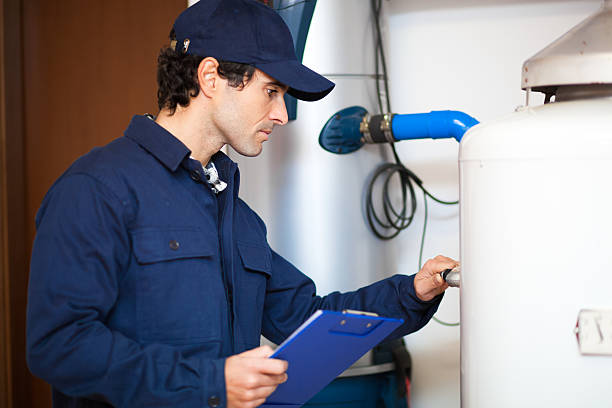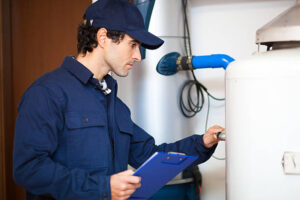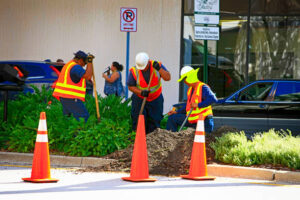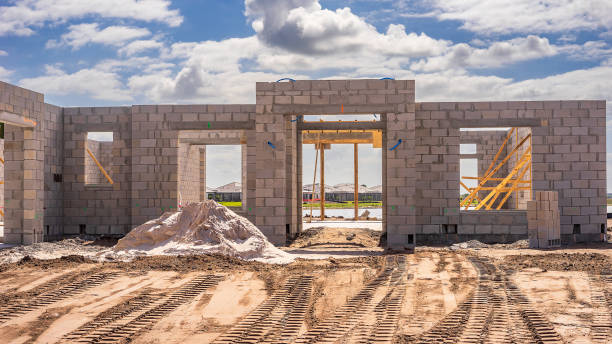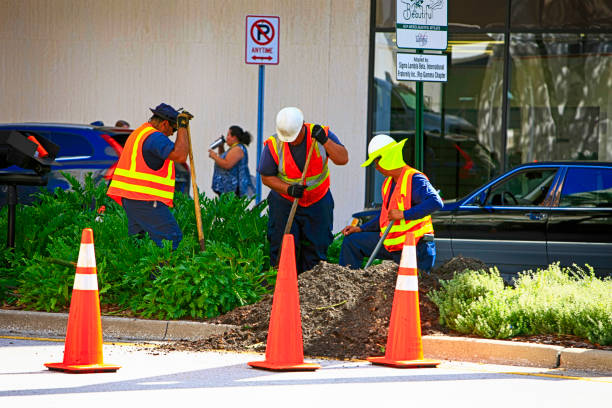Florida’s mineral-heavy water and relentless humidity create a perfect storm for water heater breakdowns. Most homeowners expect their units to last 8-12 years, but many Saint Cloud residents find themselves replacing theirs much sooner.
The good news? Some water heaters give out early, not from age but from neglect. Minerals build up. Pressure creeps too high. Small signs get ignored. Local plumbers notice the same patterns over and over. A few water heater maintenance tips can make a real difference.
Let’s explore what’s quietly wearing your unit down and what small fixes can keep it going without drama.
Understanding What Shortens Water Heater Lifespan in Florida
Hard Water and Sediment Buildup
Central Florida water is full of calcium and magnesium that can devastate heating elements and tank walls. These minerals precipitate to the bottom of your tank as a dense accumulation of sediment that makes your system work harder. Hard water impact on water heaters becomes apparent when rumbling noises or rising energy bills make it obvious.
Climate Conditions
Florida’s humidity makes you uncomfortable, in addition to speeding up rust and corrosion on water heater parts.
Those units in garages or outside utility closets also endure additional temperature fluctuations and wet exposure stress. Mold formation on the unit usually indicates air flow issues that can ruin electrical contacts.
Water Heater Type
Tankless vs tank water heater maintenance differs considerably. Old tank systems usually last 8-12 years with regular upkeep, whereas tankless systems last 15-20 years. Both, nevertheless, have their own challenges in the Floridian climate.
How long do water heaters last in Florida is mainly dependent on the frequency of maintenance and water treatment quality.
Top Maintenance Tips to Extend Your Water Heater’s Lifespan
Drain and Flush Every Year
Drain and flush water heater tanks once in a while, especially if the thing’s been running roughshod. Over time, sediment rises up at the bottom, and the unit starts functioning harder than it should.
Cut the power, shut off the water, hook up a hose, and let it empty out until it looks clean. Not a big job, but it keeps the system from grinding itself down too fast.
Inspect the Anode Rod
The anode rod sacrifices itself to avoid corrosion of the tank. Inspect it every 2-3 years; if it is less than half an inch thick or extensively corroded, replace it immediately. This $20 piece could thwart you from having to replace your water heater for $1,200.
Adjust the Thermostat to 120°F
Most systems come preset to 140°F. That kind of heat wears on the parts more than you’d think and burns through more energy than most homes need. Dropping it closer to 120°F usually does the job just fine and takes some pressure off everything inside.
Install a Water Softener or Filter
Given Central Florida’s water quality, a water treatment system pays for itself by extending appliance life. Softeners remove minerals that cause buildup, while filters catch sediment before it enters your tank.
Insulate the Tank and Pipes
Units installed in garages or outdoor closets have insulation blankets and pipe wrapping to conserve energy. Condensation problems, which cause rust, are also eliminated.
Know the Red Flags of a Failing Water Heater
Signs your water heater is failing don’t always show up instantly. One day, the water smells a bit off. A faint metallic taste lingers. Sometimes the water runs too hot, then suddenly not hot enough. And then one day, there’s a slow leak pooling at the base, like the unit’s been holding on too long.
Don’t wait. Sometimes, timely intervention can save your unit, but delayed action ensures a costly emergency replacement.
When to Call for Professional Water Heater Service in Saint Cloud
Annual Inspections by Local Experts
Water heater service Saint Cloud, FL knows local water conditions and climate issues. Annual inspections catch issues early and provide optimal performance. Licensed techs can detect issues homeowners usually overlook.
What a Full Service Should Include
Professional water heater inspection services must involve cleaning the tank, checking the temperature and pressure relief valve, checking the anode rod, and inspecting all electric or gas connections. The technicians must also analyze venting systems and provide suggestions for water treatment solutions.
Tankless vs. Tank: Maintenance Differences You Should Know
Tankless Units Require Descaling
Plumbing tips for water heaters vary by type. Tankless units require annual descaling to clean out mineral deposits from heat exchangers. Professional service is a must due to the specialized equipment and know-how needed for this process.
Storage Tanks Require Sediment Inspection
Standard tanks collect sediment that must be flushed regularly. Homeowners may maintain the basics, but professional service provides a good cleaning and part inspection.
Both systems are improved by water treatment, but tankless systems are most affected by water quality problems.
Smart Habits Equal Long Heater Life
Most heaters don’t just fail. They wear down slowly, scalding water left unchecked, a small leak that spreads, a buildup that never gets flushed.
The big problems usually start as quiet ones. A quick look now and then makes a difference. So does calling someone in before things start rusting from the inside out.
Remember that how to make your water heater last longer in Florida homes boils down to constant care and knowledge of local challenges. That always pays for less than a premature replacement.
If your water heater needs some attention or you want to start a maintenance schedule, contact Blessed Solutions US LLC. Our licensed technicians understand the unique conditions of Central Florida and will provide reliable service throughout Saint Cloud, Orlando, and Kissimmee.

